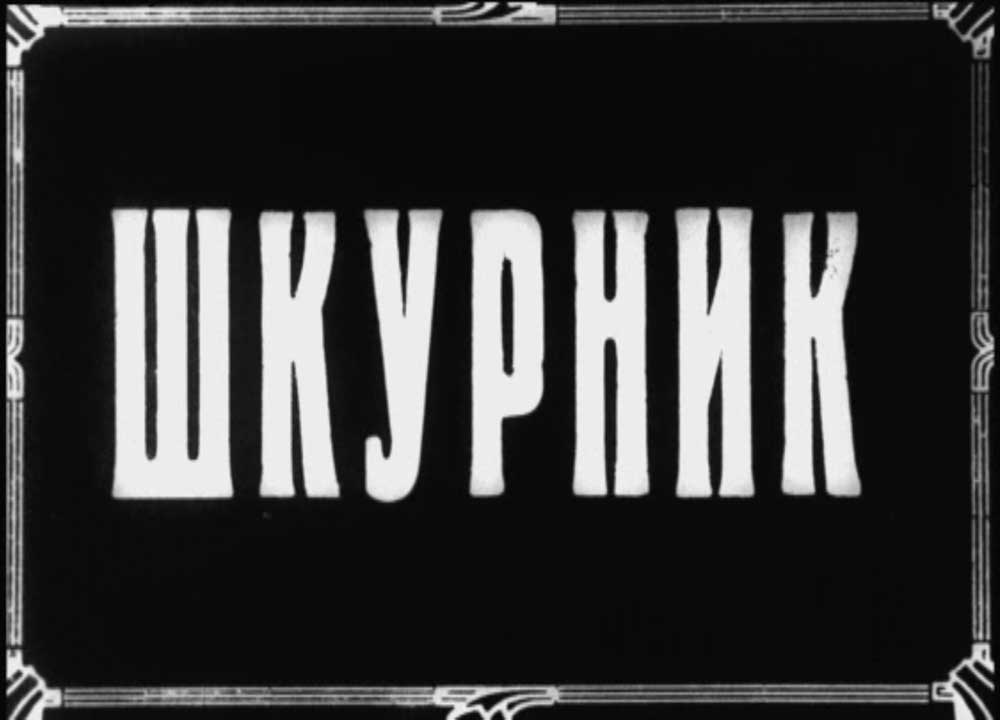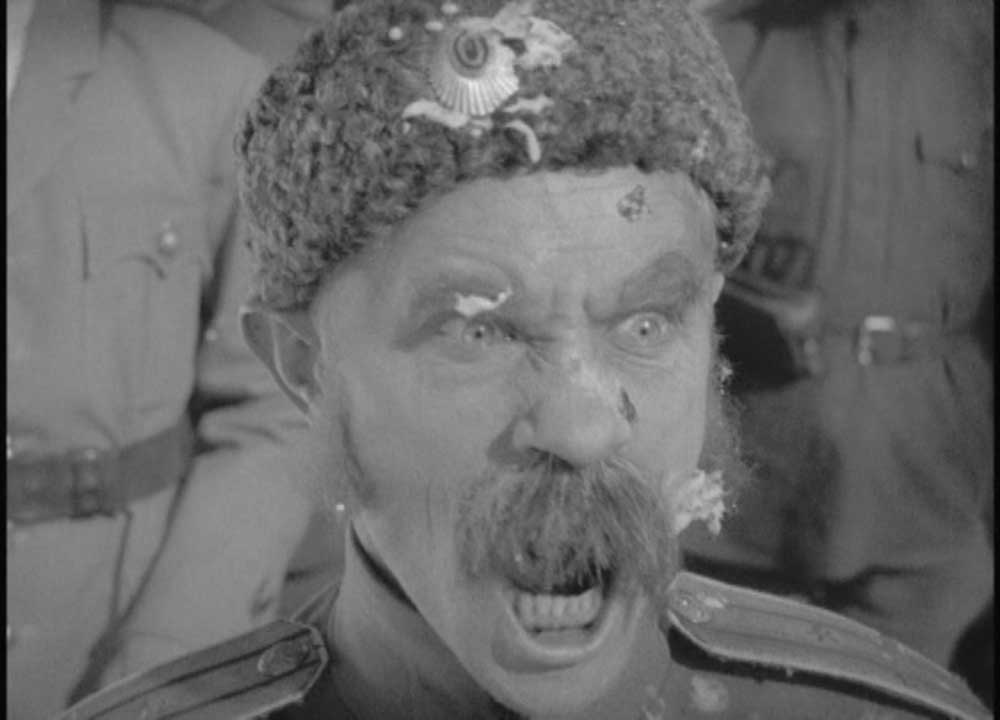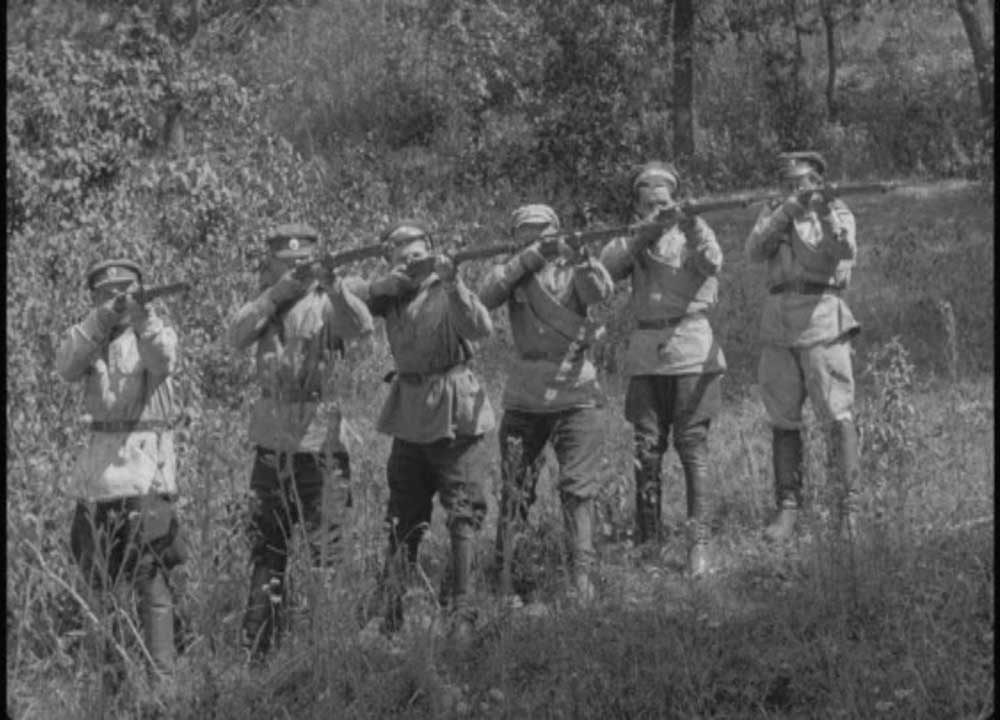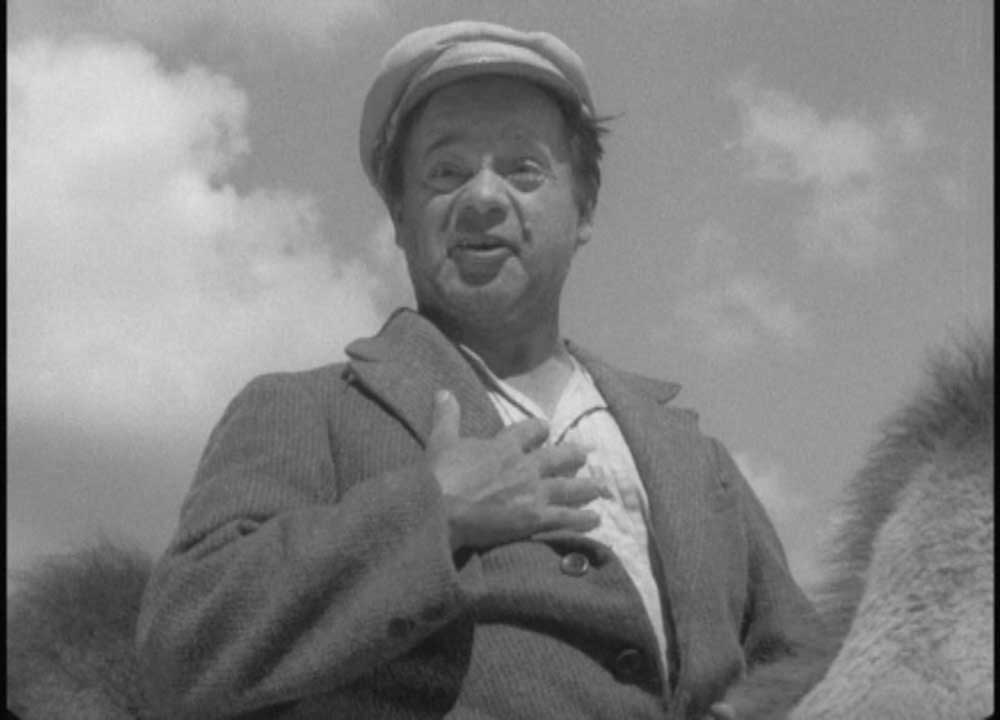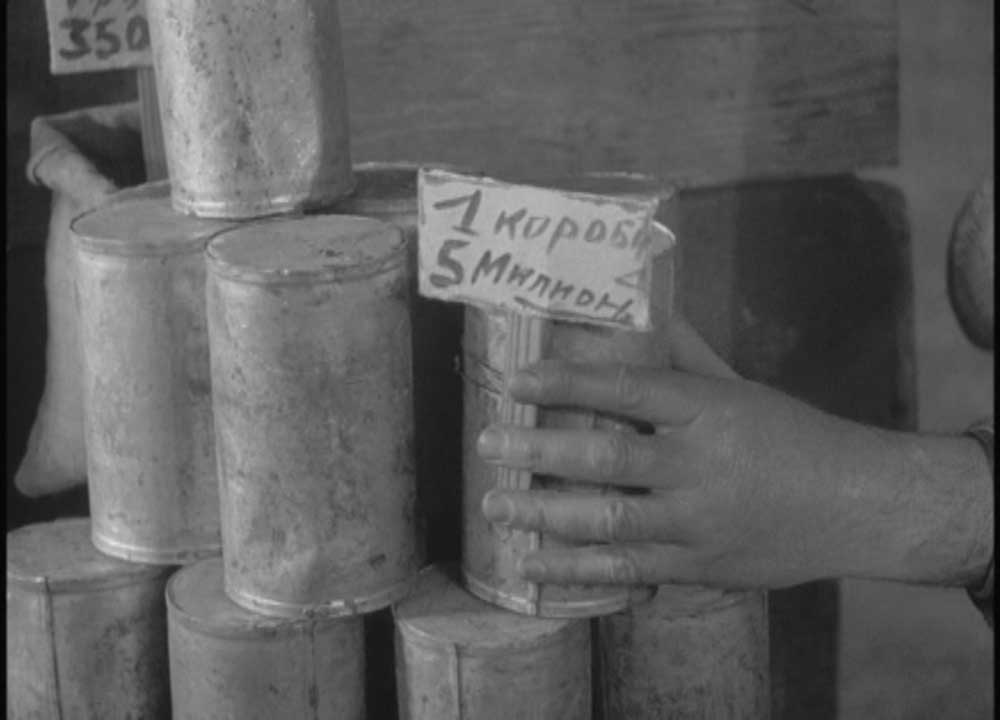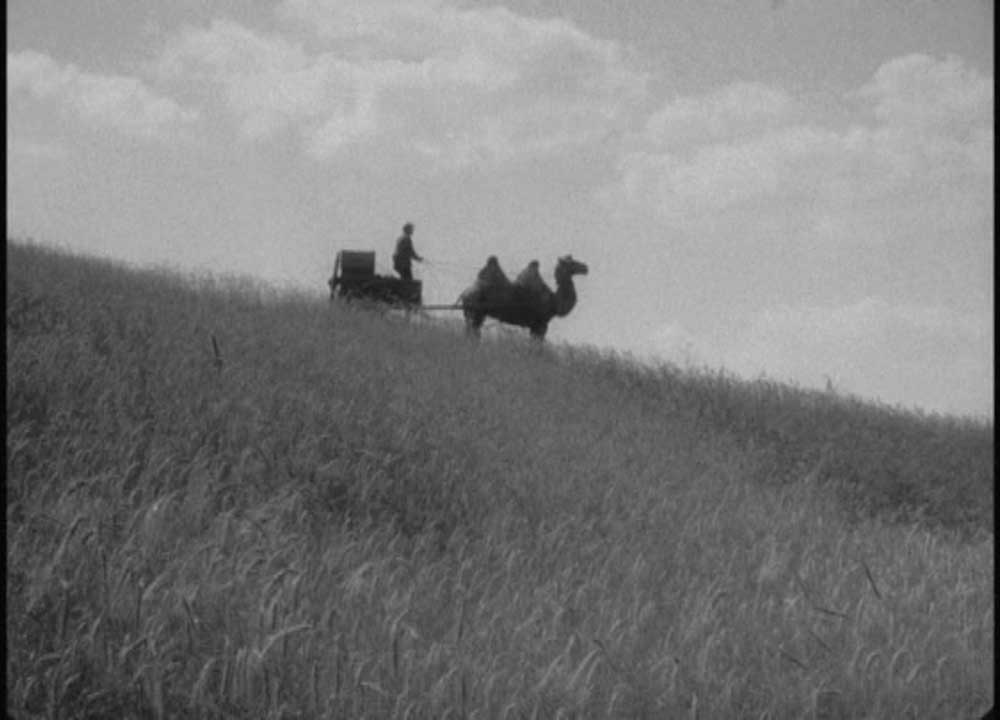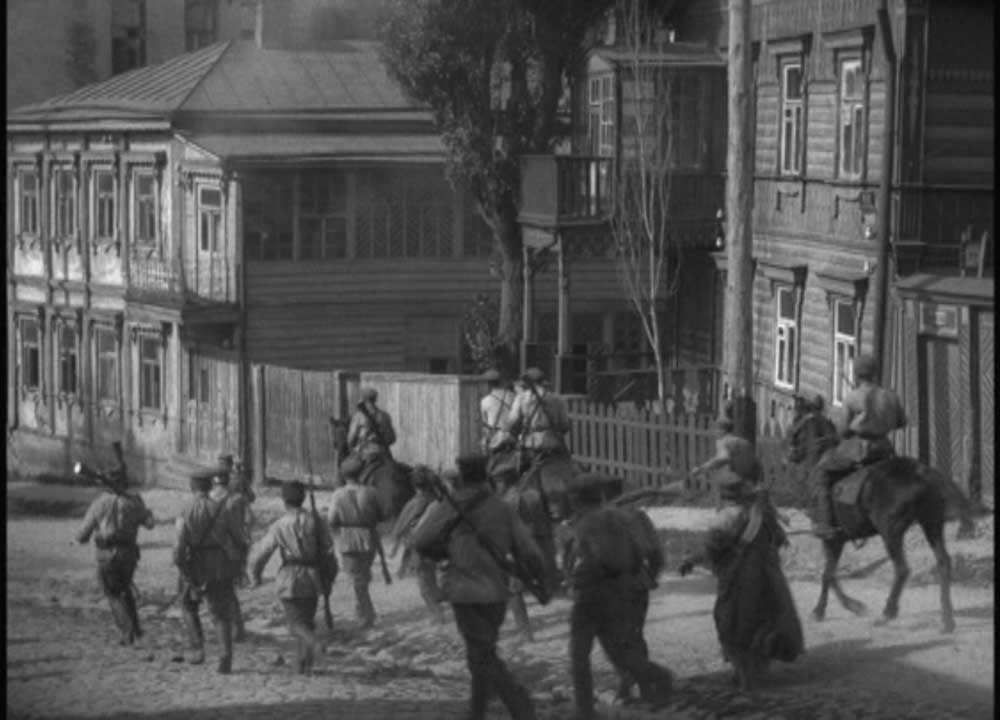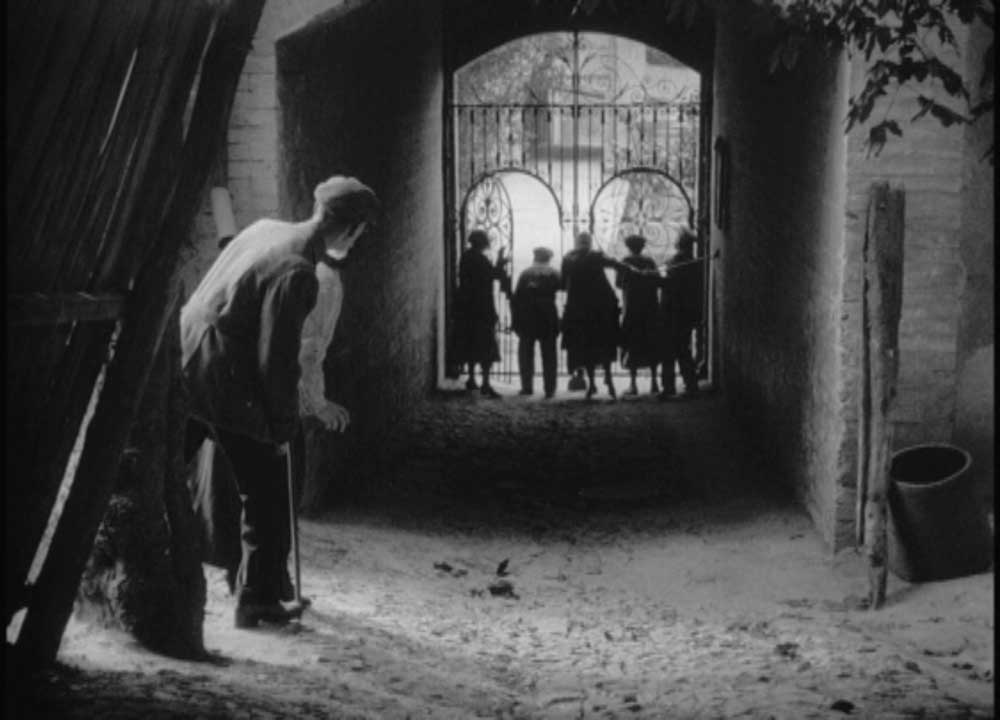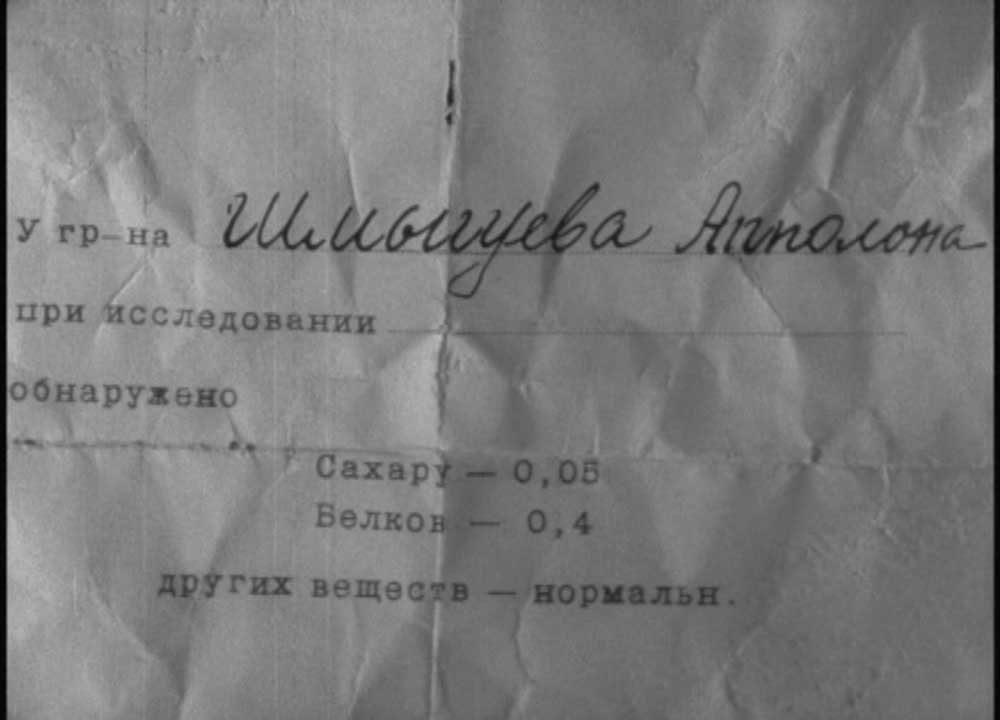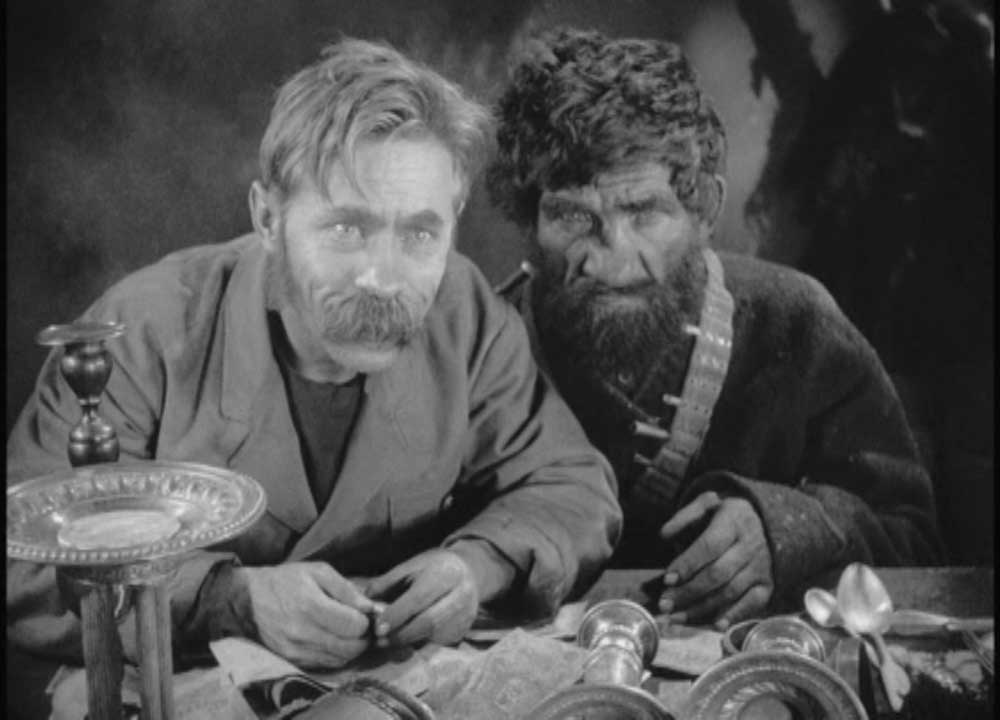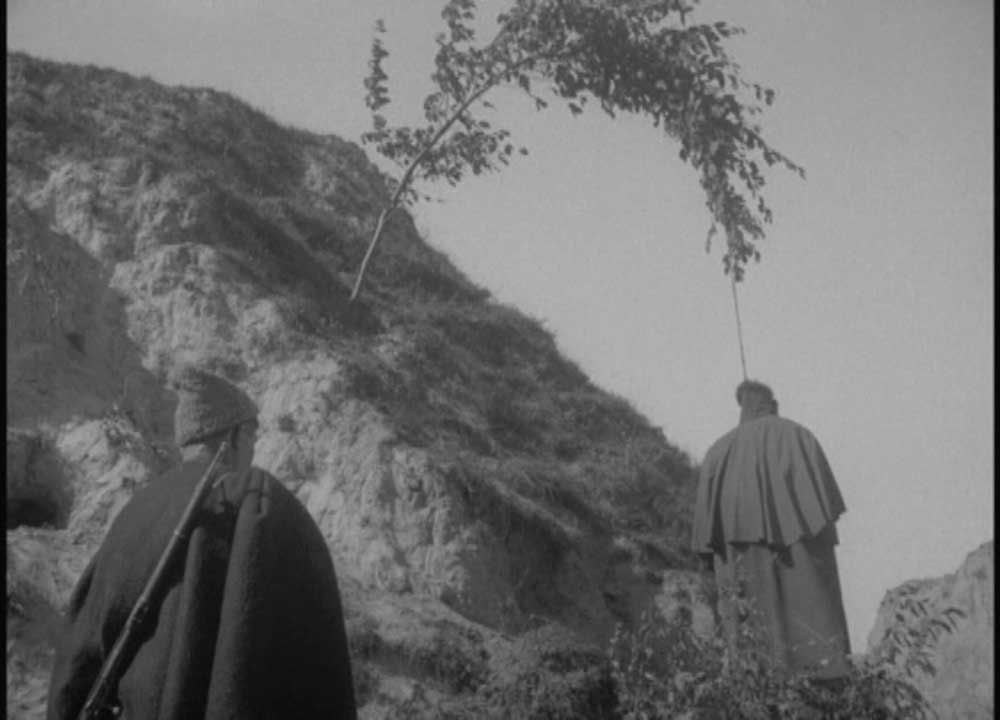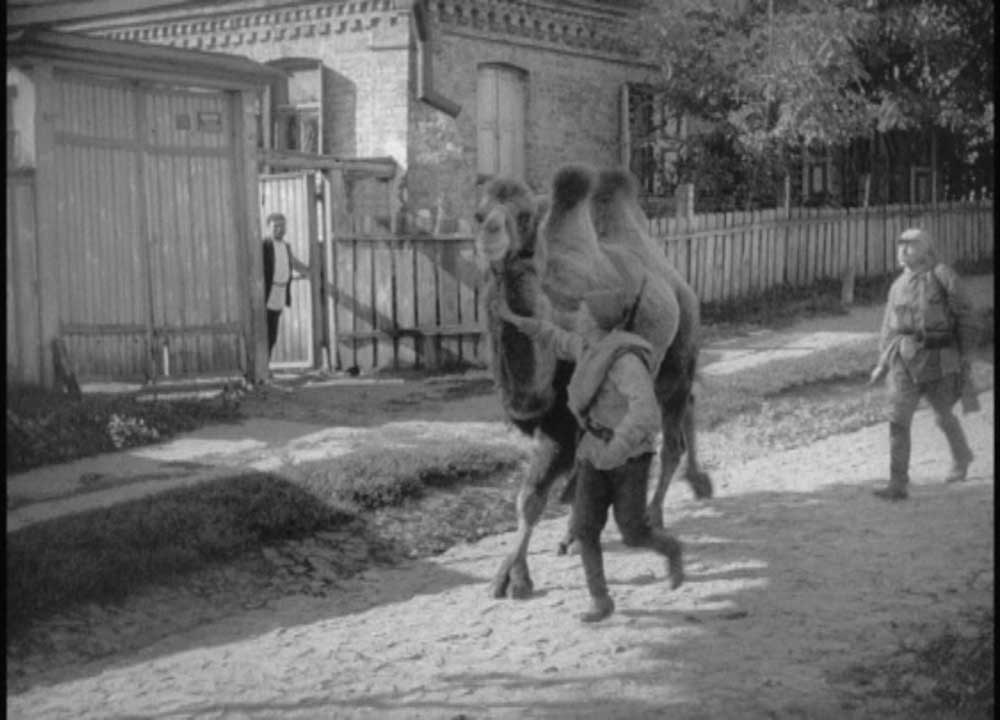
Self-Seeker / Shkurnyk
1929
Ukrainian SSR
VUFKU
78 min
Mykola Shpykovskyi
Vadym Okhrimenko, Mykola Shpykоvskyi, Borys Rozentsveih
Oleksii Pankratiev
Ivan Sadovskyi, Luka Liashenko, Dora Feller-Shpykovska, Dmytro Kapka
Apollon Shmyhuiev, a shrewd resident of Kyiv, finds his peaceful city life disrupted by the turmoil of war. In response, he resolves to weather the “political storm” by seeking refuge in the South of Ukraine—a region controlled by the Whites, a pro-Tsarist movement. After gathering abandoned products strewn along Andriivskyi Uzviz, he embarks on a journey on a camel that he stumbled upon near his home. However, midway through his journey, he is intercepted by the Reds, who seize his “vehicle” for “the needs of the revolution.” Now, Apollon’s fate lies in the hands of a Bolshevik commissar.
With time, the cowering and self-serving Apollon ascends to leadership within the local Soviet Commissariat. Yet, his insatiable thirst for profit once again jeopardizes his life.
This audacious movie defies the norms of its era, standing as a rare exemplar of early Ukrainian film comedy. It astutely satirizes the bureaucracy, fanaticism, and absurdism of the Bolsheviks, as well as the kleptocratic arrogance of the Whites. The film candidly highlights the revolutionary propagandism of the Reds, often underscored with frank sarcasm.
Based on the novel by the renowned Ukrainian writer Vadym Okhrimenko from the 1920s—a close friend of the famous Ukrainian poet Maksym Rylskyi —the film weaves a narrative tapestry that intertwines historical events and personal tales. Soon after the release, the film was promptly banned and never screened in the RSFSR (Russian Soviet Republic) and Europe. For decades, Self-Seeker languished forgotten in archives until film critic Yevhen Marholit rediscovered it through Osyp Mandelstam’s essay The Spy in which the film received a favorable review. Mandelstam extolled: “The film sees the world from the height of the saddle, from the train window, from the artillery two-wheeler—through the eyes of an ordinary person: straightforward, unburdened by symbolic whims…”
The Kyiv premiere of the film took place on May 1, 1929 (before the official decision of the DRC). While Mandelstam’s assay is believed to be from March-April of that year. Mandelstam’s familiarity with the film may stem from his personal friendship with one of the script’s authors, Borys Rozentsveih. Additionally, Mandelstam’s affiliation with VUFKU during that period likely contributed to his insight into the film’s production history. According to the poet’s widow, Nadia Mandelstam, her husband possessed knowledge of the unofficial details of the film’s creation. She writes, “In Shpykovskyi’s film Self-Seeker substantial portions of the film had to be redone, as the Red Army soldiers were initially depicted in tatters. In response to the propagandists’ demands, they were re-clothed and made to appear almost elegant.”
In 2011, a copy of the film’s negative was acquired from the State Film Fund of Russia, where the sole copy (with Ukrainian intertitles) had been preserved. Subsequently, in 2012, the film underwent scanning in 2K resolution, and the process of digital restoration was successfully concluded. Presently, a copy of the film resides in the Film Fund of the Oleksandr Dovzhenko National Center.
